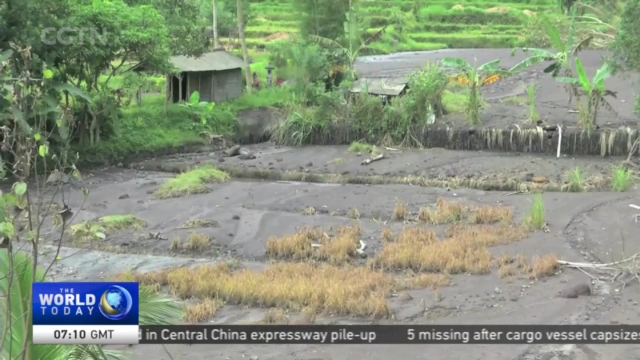
15:32, 09-Dec-2018
Economic Impacts of Climate Change: Developing countries start to feel heat of global warming
Updated
14:39, 12-Dec-2018
02:51

As leaders from more than 200 countries gather in Poland for COP24, experts are once again warning about the global impact of climate change. According to a report by the Intergovernmental Panel on Climate Change, global warming has reached new heights and developing countries are feeling the heat. Issues like food security, erratic weather patterns and frequent natural disasters could hamper economic growth in many countries. CGTN's Silkina Ahluwalia has more from Jakarta.
A research by Stanford University states that the cost of global warming to the world's economy is now detrimental. The aim is to cut emissions and to stop planet earth from getting hotter.
The research shows that if action is taken today and temperatures only rise around 2 degrees Celsius, global GDP would fall around 15 percent in the coming years. But if nothing is done and temperatures rise as high as 4 degrees Celsius, global GDP would drop nearly 30 percent. And that experts say is something to worry about. The result would be permanent and almost irreversible.
ARI MUHAMMAD, ADVISOR CLIMATE CHANGE ADAPTATION AND RESILIENCE "Businesses in this day and age need to understand the long-term effects of climate change. They have to start thinking about new management techniques, technological innovation and how to build an entirely new economic scheme that will benefit them in the future."
The industries that are most at risk include agriculture, fisheries and forestry. It's estimated that climate change could jeopardize the jobs of more than 1.2 billion people globally.
BHIMA YUDHISTIRA ECONOMIST "Global warming is already affecting some parts of developing countries. The rainforests are declining, also affecting how food security in some parts of the country. In the last four years in Indonesia, food prices are already increasing dramatically and it's also affecting the productivity of the food crops in the next future for our next generation."
In October, the Intergovernmental Panel on Climate Change released a report saying greenhouse gases in the atmosphere have reached groundbreaking levels.
SILKINA AHLUWALIA JAKARTA, INDONESIA "To keep temperatures below 2 degrees Celsius, the panel along with Greenpeace advised people to eat less meat, dairy and eggs because the production of these food items create at least 50 percent of global greenhouse emissions. Silkina Ahluwalia, CGTN, Jakarta."

SITEMAP
Copyright © 2018 CGTN. Beijing ICP prepared NO.16065310-3
Copyright © 2018 CGTN. Beijing ICP prepared NO.16065310-3